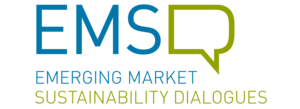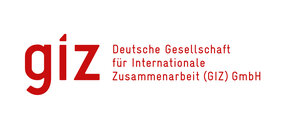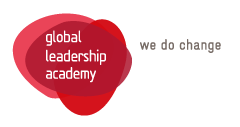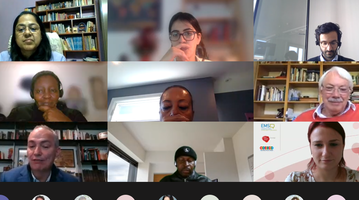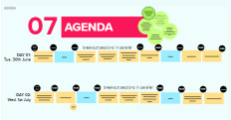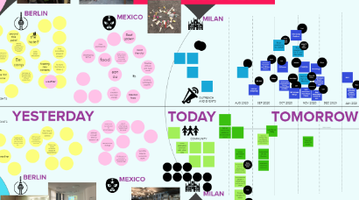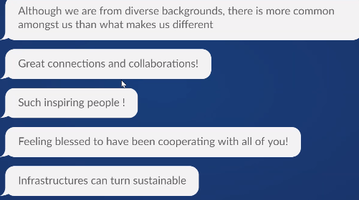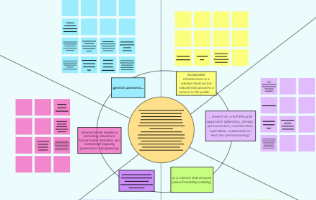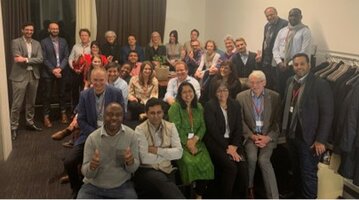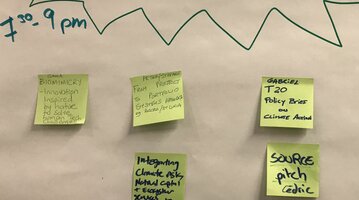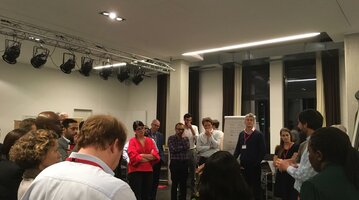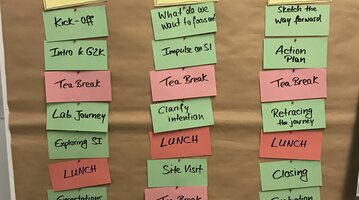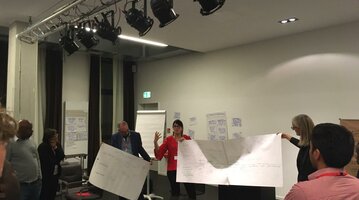The Solutions Lab
Scaling for Sustainable Infrastructure
Sustainable infrastructure is globally recognized as key to realizing the Sustainable Development Goals and Paris Agreement. Over the last years, more and more strategies, policies and tools have been developed to unleash this potential for sustainable development. Yet, public and private sector still struggle to put in place infrastructure that meets the four principles of sustainability: economic and financial, environmental, social and institutional. To analyze what hinders broad uptake of existing sustainable infrastructure solutions, to identify approaches that work, and to devise context-sensitive strategies for their scaling, the Global Solutions Initiative (GSI) and the Deutsche Gesellschaft für Internationale Zusammenarbeit (GIZ) GmbH are launching The Solutions Lab “Scaling for Sustainable Infrastructure”.
Dates and Locations
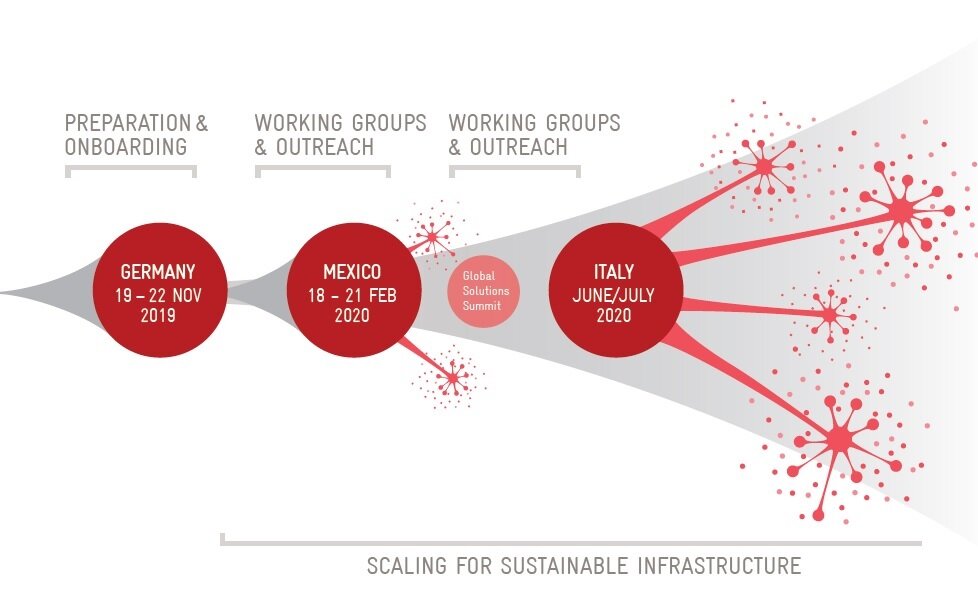
25
Participants
The Global Leadership Academy called for interested members of the GLAC Community from the three Community pillars – GLAC Leadership and Innovation Labs, Global Diplomacy Labs and the Transformation Thinkers Network – who have developed change ideas or initiatives individually or in teams within or outside of the Global Leadership Academy’s Leadership and Innovation Labs.
14
Countries
Canada, Germany, India, Italy, Kenya, Mexico, Spain, Zimbabwe
Inadequate transportation and energy networks, a lack of basic sanitation facilities and insufficient communication infrastructure still affect the well-being of billions of people. To close this gap, and thus to lay the very foundation on which societies can build the prospects of a more prosperous and inclusive future, additional investments of $15 trillion must must be mobilized until 2040, according to G20‘s Global Infrastructure Hub.
At the same time, it is becoming increasingly clear that infrastructure can also incur negative effects on people and planet, including through involuntary resettlements or climate change. In both positive ways and negative, infrastructure touches upon all dimensions of sustainability: economic, institutional, social and environmental. Therefore, the G20‘s Osaka Declaration underlines that while “infrastructure is a driver of economic growth”, what is needed is not simply ‘more infrastructure’ but ‘more and quality infrastructure’.
As evidenced by the G20 Osaka Leaders‘ Declaration, sustainable infrastructure development is recognized by policy makers as key to realizing the Sustainable Development Goals (SDGs) and Paris Agreement. To this end, more and more sustainability tools, policies and strategies have been developed. Yet, public and private sector still struggle to put in place infrastructure that serves the overarching goal of a recoupling of economic and social progress within our planetary boundaries. To change this, the Lab will address two challenges in particular: First, sustainability considerations need to be systematically integrated at every step in the planning of infrastructures. Second, the benefits of sustainable infrastructure need to be quantified to strengthen the business case for sustainability.
To address these challenges, the Global Solutions Initiative (GSI) and the Deutsche Gesellschaft für Internationale Zusammenarbeit (GIZ) GmbH are launching The Solutions Lab “Scaling for Sustainable Infrastructure”. The 8-month process brings together app. 25 experts from academia, policy, finance and infrastructure development to overcome implementation challenges and upscale sustainable infrastructure solutions.
The Solutions Lab consists of three face-to-face meetings as well as a virtual dialogue process along the way. The 2020 Global Solutions Summit in Berlin was an additional mile-stone which allowed a delegation to present the Lab process and interim results to a high-rank policy audience. In addition, there was space and potential funding throughout the Lab process to organize (1) sounding boards which serve to test ideas amongst a specific target group and (2) outreach events which helped to advocate for Lab results and ideas. The Solutions Lab ran from November 2019 until summer 2020. Yet, implementation was expected to continue organically beyond the last Lab meeting in Milan as the Circular Economy Solutions Dialogues show (see section below on Impact).
The Solutions Lab promotes dialogue and mutual learning amongst a diverse set of stakeholders from the sustainable infrastructure ecosystem: The program stimulates the exchange of experiences across regional and professional boundaries (peer learning). This allows participants to thoroughly understand and appreciate the perspectives of a diverse set of players including the private, public and financial sectors as well as academia – a key prerequisite to create and scale innovative solutions for sustainable infrastructure. The process aims to develop viable networks which can be drawn on even after the official Lab process has come to an end.
Inspiring participants to take action: To move from dialogue to action participants will, in a first step, collectively analyze what has been hampering the scaling of sustainable infrastructure solutions to date. Here, the goal is to identify specific target areas where changes and innovation are needed. In a second step, the process will enable participants to develop concrete steps and recommendations to overcome these obstacles. The process will be accompanied by experienced change facilitators – but ownership ultimately rests with the participants.
Equips participants to take leadership as change agents: Finally, The Solutions Lab will inspire participants to take leadership and support them in their role as change agents.
Implementation Strategies: How can sustainability solutions be scaled across work streams of public and private sector infrastructure development?
Tools and Approaches: How to adjust existing sustainability solutions to overcome the implementation gap?
Policy Briefs: What policies are needed to allow for a global uptake of innovative sustainability solutions?
In today’s world, economic, social and environmental issues are strongly interrelated. No matter the topic, an increasing number of actors is involved, cause and effect can be far away in space or time. Yet, most of our approaches are still developed and implemented in sectoral and organisational silos: the way we respond to our challenges no longer matches the complexity and dynamics of our most pressing challenges.
With the 2030 Agenda for Sustainable Development, the international community recognized the strong interlinkages between all dimensions of sustainability and called for a holistic approach to global development. The SDGs represent a global realisation that the current situation is unacceptable, it cannot be transformed unilaterally or immediately, and there is a need for spaces that allow for a collective search for new approaches. The Solutions Lab creates such a space on the basis of the “Social Lab approach”.
A Social Lab is systemic and participatory. Where leaders and change agents have diverse perspectives on how to address their shared area of concern and no single actor has the solution, it fosters collaboration across organisations, sectors and often national borders. This helps create the necessary commitment of different stakeholders to work together towards common goals in the long run.
Rather than a linear and reactive approach (conventional planning, development and strategic responses have proven inadequate), addressing such complexity as outlined above requires an approach that is emergent and responsive to the changing nature of the challenge being addressed. The Lab thus provides a space for a purposeful detour that enables the group of participants to explore and uncover the existing reality, to co-create new ideas and to scale innovative solutions.
GSI and GIZ are driven by a shared vision of a more sustainable and livable future for all. On the basis of their complementary skillset and networks, both partners decided to develop a new Lab format, The Solutions Lab. GSI provides participants with close access to G20 work streams and a chance to present the solutions developed throughout The Solutions Lab at the 2020 Global Solutions Summit.
GIZ’s vast global network, in turn, provides ample implementation experience and an opportunity to scale up innovative solutions across more than 120 countries worldwide. Building on the know-how and the expertise of GIZ’s Working Group on Sustainable Infrastructure, content and key challenges for the Lab have been identified. The Global Leadership Academy of GIZ designs and facilitates the process, based on its years of experience in international dialogue processes.
In particular the Lab aims at:
Promoting dialogue and mutual learning amongst key stakeholders.
The program will stimulate dialogue and an exchange of experiences, both within and across regional and professional boundaries. This will allow participants to learn from the experience of others (i.e. peer learning) and to thoroughly understand the perspectives of all players – a prerequisite not only for creating but also for scaling sustainable innovation. The process aims to develop sustainable networks which can be drawn on even after the Lab process has come to an end.
Inspiring participants to take action.
In a first step, participants will collectively analyse what restrains the scaling of sustainable infrastructure solutions in order to identify specific target areas where change and innovation are needed. In a second step, the process will enable participants to develop concrete steps and recommendations to overcome these obstacles. The process will be accompanied by experienced
change facilitators – but ownership ultimately rests with the participants.
Equipping participants to take leadership as change agents.
The knowledge gained and skill sets developed throughout the Lab will help participants to identify the preconditions that are necessary to scale up sustainable infrastructure solutions: by raising understanding of successful tools/approaches and by clarifying and overcoming existing barriers
to implementation.
Insight Reports
The process entails online exchange and coachings to share, learn and develop ideas further as well as two face-to-face meetings.
Insight, Lab meeting 3
"Milan online", from 30 June to 2 July 2020
The final face-to-face meeting of The Solutions Lab on Sustainable Infrastructure was planned to take place in Italy’s beautiful Milan – however reality took us to a different place: due to the pandemic we went online and had a virtual Lab meeting from June 30 - July 2 2020. This decision proved to be successful: participants from numerous time-zones demonstrated extraordinary commitment.
report
Using all digital means available to collaborate under the current difficult circumstances – from reuniting in the main room in MS Teams and mural and meeting on digital break out corners to a virtual tour of the University of Bocconi’s zero emissions campus, we had one aim: to work on outreach and scaling strategies in the five Solutions Lab workstreams to make Infrastructure more sustainable and to reach the much-needed Green Recovery.
The workstream Narrative & Vision worked on a collective vision for an integrated planning approach to deliver sustainable and resilient infrastructure in a post-Covid-19 world and produced a shared definition of ‘sustainable infrastructure’ as well as a Call to Action with stakeholder specific messages for a pivot away from business as usual and towards transformative action.
The workstream Upstream Policy Considerations reinforced that major efforts are needed ‘upstream’ to prioritize investments that best balance economic, social and environmental trade-offs. Raising awareness on the centrality of upstream considerations especially in the public sector, this group designed a roadmap to strengthen awareness and capacities for integrated infrastructure planning at various levels of government.
Initiated by Mexico’s National Infrastructure Fund (FONADIN), the workstream on Ensuring Sustainability at Project & Pipeline Levels - to mainstream sustainability standards across its project pipeline – aims at assisting institutions that face similar challenges. This group has been working to translate lessons-learned into an actionable Guidance Note which will be disseminated through partner institutions and acco
mpany implementation cases.
A deeper look into how women are affected disproportionately by inadequate energy, sanitation and transport infrastructures is undertaken by the workstream Gender & Infrastructure. To counter the flawed perception that infrastructure is gender-neutral and guide gender-responsive planning, this group has been collaborating to design a knowledge repository and educational materials for students and practitioners.
The workstream T20 Policy Briefs resulted in several participants groups who wrote T20 policy briefs to inform discussions at Saudi Arabia’s G20 presidency. Topics include (1) multilevel governance & green finance for sustainable infrastructure, (2) innovations in revenue and finance models, (3) system change to recouple growth with sustainability, and (4) policies and rules for data-driven, integrated planning of sustainable infrastructure. Final briefs will be published on T20 Saudi Arabia's website and serve as background for the T20 communiqué.
Further key decisions taken in the final Solutions Lab meeting were:
1) The Solutions Lab will continue to exist as a self-driven ‘Community of Practice’ who will co-create further on the topic of sustainable infrastructure
2) The Solutions Lab concept and journey, the “Call to Action” and SI vision, the finalized products of the work streams as well as the participants and their SI expertise will be showcased in a ‘Results Booklet’ published by October 2020.
Insight, Lab meeting 2
Mexico City in Mexico, from 18th to 21st February 2020
The 2nd face-to-face meeting of The Solutions Lab on Sustainable Infrastructure focused on conducting a ‘deep dive’ into the challenges on Sustainable Infrastructure identified within the 1st module and provided a space for the participants to further develop the interventions they had been working on since Module 1 in November 2019. Mexico City was selected as a suitable venue for the event due to the country’s commitment to the Agenda 2030 and the Paris Climate Agreement and its efforts to address climate change.
report
The Inter-American Development Bank (IDB) was implementing partner and Co-Host for this second Lab meeting. IDB’s commitment stemmed from its interest in pushing the agenda for sustainable infrastructure, its focus on enabling bankable projects of sustainable infrastructure, and its operational experience in the region, specifically in Brazil, Mexico, Peru and Colombia. The IDB had outlined aspects of importance: a common definition of sustainable infrastructure (SI), a better understanding of the granularity and nuances within the system and a user focused solution development approach. GIZ’s program Emerging Markets Sustainability Dialogues (EMSD) focused on “How can we ensure that people – e.g. infrastructure projects within the GIZ portfolio - can incorporate the found results into their day-to-day work?”
Participants presented short summaries of the work they had conducted since module 1 followed by feedback from the entire lab community and in-depth discussions in the workstreams. The objective was to advance the process outputs from idea stage into tangible products. In addition to an external input from BlackRock discussions revolved around integrating sustainability at project and pipeline level, gender mainstreaming, upstreaming and the outreach strategy for the lab.
The lab discussion on upstream planning focused on interventions that would enable scaling of sustainable infrastructure while other parts examined the question of how to reflect the output in the upcoming sounding boards, link it to potential projects and ensure its insights are reproduced in the T20 Policy brief on multilevel governance.
The discussion on the narrative, vision and joint product of The Solutions Lab focused on determining how to communicate the value of the lab to an external audience while ensuring that the shared values that brought lab participants together were documented. Participants challenged the status quo: “Do we need to work on a narrative and vision on two different levels; i.e. (1) narrative of The Solutions Lab (what is our USP), (2) what is our vision for SI?”
The discussion on innovation space enabled participants to deepen the topics of solution development, ownership and value delivery about the business model for the SI app, which specific market failure it is trying to solve as well as to include further stakeholders such as the voices of indigenous systems, rural environments as well as from the younger generation of children and students as part of the future.
A collection of the most relevant questions included:
- The rise of costs once you start considering biodiversity in infrastructure
- How to achieve mobility for all
- Planning using agent-based modelling for people as opposed to vehicles and
- How to address data systems and standardization around projects and their ESG impacts by upstreaming
- Cross-linking transport to water/sanitation/education
- Defining a framework of assessing what makes an infra asset sustainable.
The participants also looked at the common threads for SI, the collaborative approach to SI, the need to move past concepts and frameworks towards implementation and problem solving, disaggregated data and the synergies among the workstreams: a need was identified to connect upstream planning and project scale, more sustainable project scale investments, upstream planning agent based modelling for assessment of service needs including gender disaggregation, assessment of ecological regeneration needs and benefits, as well as a focus on infrastructure lifecycle and achieving sustainable solutions. Participants find the uniqueness of this Lab in the value of embracing the full infrastructure lifecycle and addressing growing risks, leaving no one behind for the first time, collaboratively, outlining an expenditure plan from Roadmap2030, prioritize needs and analyze country good case practices.
Towards the end of the module it was explored which key messages to take from the Lab to the upcoming sounding board of mayors in Oaxaca and decided for: a) implementation of a collaborative regional approach to improve efficiency of service support infrastructure-water, energy, waste, communications and agriculture production improvement and soil enhancement b) how to approach communities respecting indigenous knowledge c) how to focus investment magnitudes per year for different sectors to deliver SDGs by 2030 and d) disaster risk reduction. The Lab Community decided to share in Oaxaca about approaches in India such as the Village Sunrise Program and Ghana (collaboratory and use of data at Resilience Brokers)
Impressions
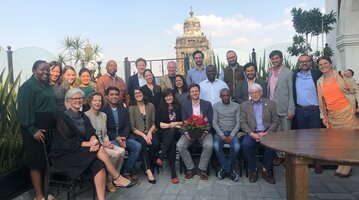
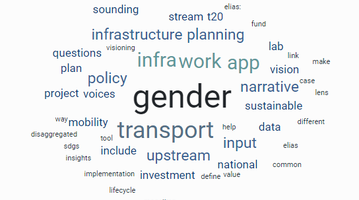
Insight, Lab meeting 1
Berlin in Germany, from 19th to 22nd November 2019
In November 2019 the Solutions Lab - Scaling for Sustainable Infrastructure kicked off with a meeting in Berlin. Participants from academia, policy, finance and infrastructure development of 14 countries around the globe met in person for the first time. Over the course of four days, participants came together to develop answers to two questions:
1) How can we as leaders and change agents ensure that sustainability considerations are systematically integrated at every step in the planning of Infrastructure Development?; and
2) How are economic, social and environmental benefits of sustainable infrastructure best quantified?
report
Our journey began with an online onboarding session where we got to know each other, connected for the first time, shared expectations and introduced our expertise on sustainable infrastructure. This was followed by the first face-to-face meeting in Berlin where the focus was on kick-starting the solution development process. To seed the dialogue, the two guiding questions were proposed (see above). Reflecting on those, participants worked together through a combination of generative dialogues, expert inputs, and innovative knowledge exchange formats, to analyze the status quo and identify the challenges, ideate possible solutions, and explore strategies to scale solutions.
In an early dialogue, participants identified their feelings of inadequacy and helplessness in the face of the challenge. One asked, “Do we know the answers? Have we started to develop solutions?” Another commented, “We are all embedded, but we are collectively stuck”.
The group identified key thematic areas of focus as: Sustainability dimensions – specifically environmental, economic, social, financial, and institutional; Integration of various sectors and systems – energy, water, transport, digital, natural, and infrastructure; alignment with global development agendas – Agenda 2030, Paris Agreement, Osaka Declaration; Sustainability along the entire project lifecycle – planning, designing, procurement, operation, maintenance, and decommissioning; Climate resilience and Multi-Stakeholder engagement.
A discussion on the underlying rationale for the solutions lab identified three areas where the participants felt the lab could add value:
- upstream – in policy development
- implementation level – linking local to global
- finance – enabling a paradigm shift that transformed narratives.
Participants felt that addressing these three areas would enable the global community working on sustainable infrastructure to go beyond pilot projects. There was a consensus that while technical solutions were in existence, there were political and economic challenges that blocked their implementation at scale and that needed addressing. These challenges were categorized as systemic and defined as holding back progress in the sector. This prompted a question within the group “Do we have the capacity to address these types of challenges?”
The final decision on potential interventions was: to develop policy briefs for the T20; to review upstream considerations; to translate accepted guidance and principles into a pragmatic process for ensuring sustainability at project and pipeline levels; and to develop a coherent vision and narrative that provides the underlying rationale for the interventions. The agreed objective was to define scalable processes, including the meaningful integration of sustainability tools, to ensure sustainability on the ground as well as along the entire infrastructure project cycle. These areas of intervention were used to define the lab workstreams that would continue working together in the online co-creation phase to build a better understanding of the challenge in preparation for the development of solutions. An additional workstream was created to focus on the cutting edge of the dialogue and explore possible innovations that had the potential to transform the sustainable infrastructure system in the future.
We left Berlin having made commitments to contribute to the various workstreams, and to have at least one group call where all participants could touch base on the progress we had made and support the co-creation of the program for the Mexico meeting in February 2020.
back home
Back home participants started to collaborate in four work streams:
THINK 20 (T20) Policy Briefs.
Several participants have joined forces to create policy briefs, which will be submitted to relevant T20 task forces under Saudi Arabia’s 2020 G20 presidency. Topics include upstream planning considerations, the promotion of an enabling environment for sustainable infrastructure development and the nexus between infrastructure, biodiversity and circular economy.
Upstream Policy Considerations.
This work stream focuses on both high-level guidelines and concrete modelling tools for integrated upstream planning approaches to sustainable infrastructure development, which cut across different sectors, stakeholders and geographic areas. To identify barriers to implementation at scale, proposed solutions are studied and tested by means of several case studies at the national, regional or metropolitan levels (i.e. Ghana, Paris).
Ensuring Sustainability at Project and Pipeline Levels.
It is critical to consistently integrate sustainability considerations at the project level. Therefore, this work stream zeroes in on the establishment of concrete indicators and processes, the integration of tools, and the optimization of monitoring mechanisms to ensure that institutions such as national infrastructure funds mainstream sustainability across their portfolios. The Lab is also addressing the nexus between infrastructure and gender at the project and pipeline levels as well as general social and environmental risk management mechanisms.
Innovation Space.
The innovation space is designed to take up and integrate new ideas throughout the entire Lab journey. Suggestions include the use of AI and social media to analyze civil society perceptions on infrastructure projects and to support local stakeholder engagement.
Follow up and Impact created
In the scope of a green technologies dissemination initiative implemented by Deutsche Gesellschaft für Internationale Zusammenarbeit (GIZ) in cooperation with the Global Solutions Initiative (GSI) on behalf of the German Federal Ministry for the Environment, Nature Conservation, Nuclear Safety and Consumer Protection (BMUV), the global circular economy agenda is being advanced through a series of Circular Economy Solutions Dialogues (CESD).
The Circular Economy Solutions Dialogues (CESD) were launched with a view to inspiring a conducive circular economy (CE) narrative feeding into the G/T20 process. They build on the momentum of multilateral policy dialogues and commitments on the circular economy (GACERE, ACEA, LAC CE Coalition, G20 Resource Efficiency Dialogue), and focus on both analyzing mechanisms scaling-up circularity and devising context-sensitive strategies for their broad implementation.
The CESD span across three thematic cycles, focusing on 1) plastics, 2) supply chains, 3) urban metabolism and sustainable infrastructure. They are complemented by a Sounding Board, a parallel, amplifying dialogue stream dedicated to developing a cross-sector circular economy agenda at a multilateral level. The Sounding Board targets international fora, such as the G20, T20, ASEAN and the EU to connect the thematic dialogues with a multilateral perspective. It will be convened periodically to consolidate the insights of the CESD and related initiatives of GIZ and GSI.
For CESD#1 see below, CESD #2 Circular Supply Chains will begin in fall 2021 and CESD #3 Urban Metabolism and Sustainable Infrastructure will take place in spring 2022.
If you are interested to learn more about the Circular Economy Solutions Dialogues or if you are working on research papers or policy briefs related to the circular economy that you would like to share, please contact the Global Solutions Initiative.
Thirty CE experts including public and private sector decision makers, and representatives from civil society, academia, think tanks and international organizations involved in CE initiatives worldwide participated in the first Solution Dialogue, convening four times in May and June 2021:
Notwithstanding the multitude of technological, business and other circular economy approaches for plastics proposed by the private sector, more conducive policy and financial framework conditions are required to turn individual initiatives into wide-scale global solutions. An appropriate mix of actionable policies capable of facilitating and accelerating a circular economy transition may include sustainable producer guidelines (e.g. Extended Producer Responsibility (EPR) systems), empowerment of consumers and public buyers, enhanced waste prevention initiatives, and incentives for the promotion of green technologies. These policy alternatives form the basis of discussion themes addressed by the first CESD, which focused on the circular economy in the plastics value chain and analysed enabling options and tools such as implementing EPR systems to establish regulated residual and resource streams.
Session one of the dialogue aimed at building a common understanding of challenges and solutions in integrating circularity in value chains, focusing on plastics, and at stimulating a forward looking, solution-focused discussion viewing the circular economy in two parallel lenses: 1) enabling frameworks 2) actual implementation.
The second session focused on the technological perspective of embedding circularity into the plastics value chain. Participants addressed the issue of mainstreaming circular economy technologies (incl. tech-based business models) in the plastics value chain, with discussions on key enablers of technology-based CE business models (incl. innovation, regulation/licencing, investment bankability), and on mechanisms facilitating large-scale uptake of the CE (notably standardisation and infrastructure).
The third session zoomed in on the challenge of scaling-up circularity in the plastics value chain. The participants discussed the promotion of an ecosystem-based approach to scale-up circular solutions’ uptake in the plastics value chain, with discussions on policy support (notably under EPR schemes), private sector involvement, and (multi) national and urban partnerships on the CE.
Session four was all about strategy. How can we define context-sensitive strategies for a broad implementation of mechanisms scaling up the uptake of circular economy practices across the plastics value chain? The discussion took due consideration of the ‘why’ factor: what does more circularity in the plastics value chains mean for people, business and nature?
The policy brief “Localising the circular economy imperative in a post COVID-19 era: place, trade and multilateralism”, co-authored by participants of the CESD, was accepted by the T20 for the Task Force 2 – Climate Change, Sustainable Energy & Environment. The co-authors, including researchers from Bocconi University (Italy), Economic Research Institute for ASEAN and East Asia (Indonesia), Council on Energy, Environment and Water (India) and the Asian Development Bank Institute (Japan) as well as expert members of the CESD hosting team, are currently finalizing the policy brief to submit it to the T20, chaired by Italy.
The CESD hosted two multi-stakeholder panels at the digital Global Solutions Summit 2021:
- “Breaking up the linear economy in emerging countries: Circular economy vision-setting panel”, moderated by GSI Fellow & CESD thematic convener Nicolas Buchoud, with high-level speakers from international organizations, government, think tanks and business.
- “Localising the circular economy imperative in a post COVID-19 era: Place, trade and multilateralism” with distinguished panelists from government, think tanks, private sector and civil society, moderated by CESD thematic convener Alexander Charalambous.
The CESD hosted two multi-stakeholder panels at the hybrid Global Solutions Summit 2022:
- "Circular economy and global value chains" on March 28th, from 12.30 -13.20 GMT, where the focus will be to discuss effective solutions and practical recommendations to be implemented in the context of coordinated G20/G7 initiatives towards a sustainable global recovery.
- "The growing imperative for a circular economy", March 29th 11.30-12.15 GMT, where the focus will be to share insights on advancing circular economy across three critical divides: 1. key sectors (industrial, environmental, financial and social); 2. advanced and emerging economies; 3. climate and circular economy agendas.
Resources
»Towards a new paradigm for sustainable infrastructure« Article in the Global Solutions Journal
BOOKLET »THE SOLUTIONS LAB – SCALING FOR SUSTAINABLE INFRASTRUCTURE«
RESULTS BOOKLET»THE SOLUTIONS LAB – SCALING FOR SUSTAINABLE INFRASTRUCTURE«
INSIGHT REPORT 1 »The Solutions Lab – Lab meeting 1 Berlin«
FLYER SECOND LAB MEETING MEXICO
INSIGHT REPORT 2 »The Solutions Lab – Lab meeting 2 Mexico City«
Our Partners
We implement all our programmes in cooperation with our internationally renowned partners with whom we share our passion for dialogue and change and our commitment to high quality standards.
The Convening Partners
